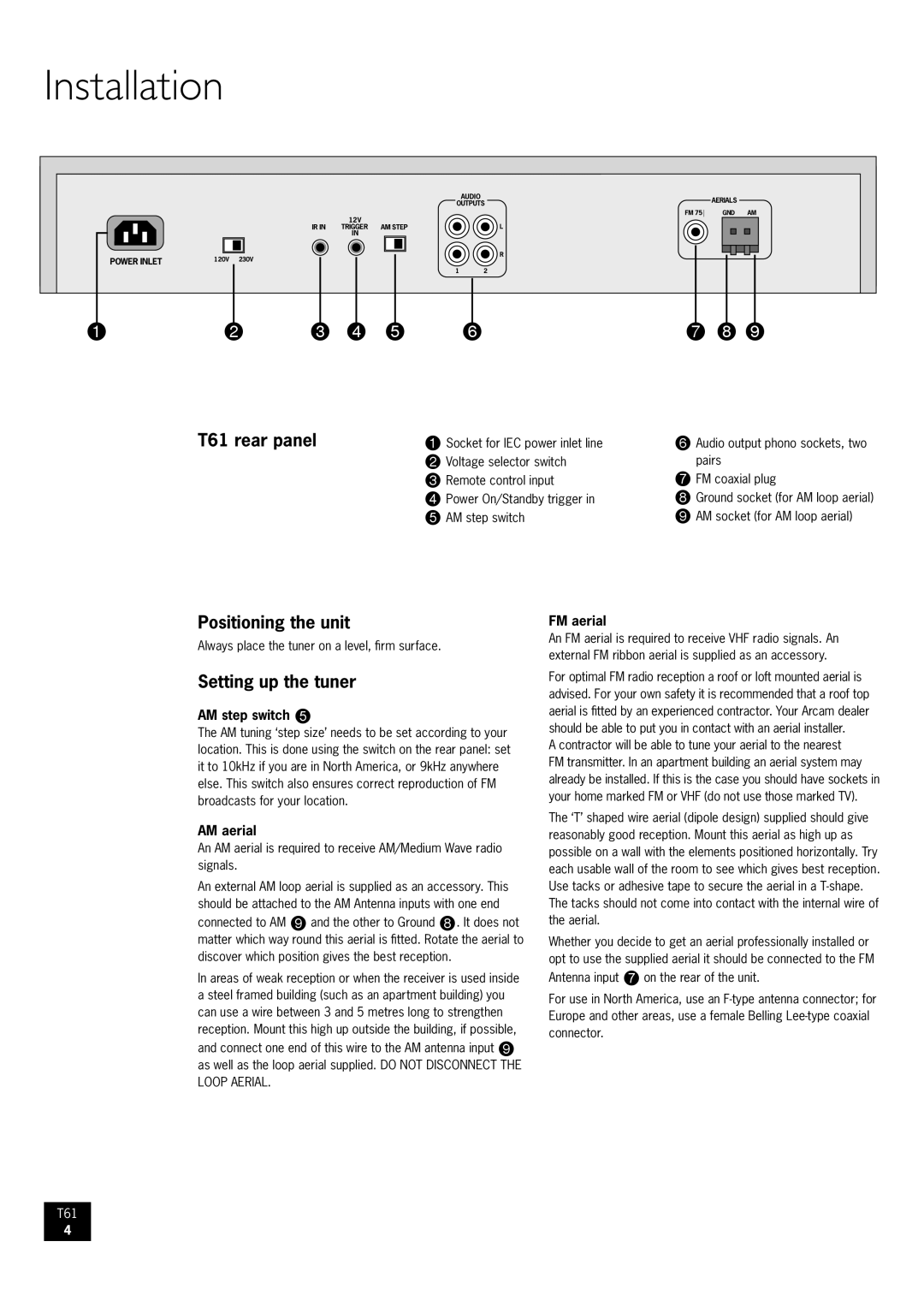
Installation
|
|
|
| AUDIO |
|
|
| OUTPUTS | |
|
| 12V |
|
|
| IR IN | TRIGGER | AM STEP | L |
|
| IN |
|
|
POWER INLET | 120V 230V |
|
| R |
|
|
| ||
|
|
| 1 | 2 |
1 | 2 | 3 4 5 | 6 |
T61 rear panel | 1 Socket for IEC power inlet line |
| 2 Voltage selector switch |
| 3 Remote control input |
| 4 Power On/Standby trigger in |
| 5 AM step switch |
AERIALS
FM 75 | GND AM |
|
|
|
|
7 8 9
6 Audio output phono sockets, two pairs
7 FM coaxial plug
8 Ground socket (for AM loop aerial)
9 AM socket (for AM loop aerial)
Positioning the unit
Always place the tuner on a level, firm surface.
Setting up the tuner
AM step switch 5
The AM tuning ‘step size’ needs to be set according to your location. This is done using the switch on the rear panel: set it to 10kHz if you are in North America, or 9kHz anywhere else. This switch also ensures correct reproduction of FM broadcasts for your location.
AM aerial
An AM aerial is required to receive AM/Medium Wave radio signals.
An external AM loop aerial is supplied as an accessory. This should be attached to the AM Antenna inputs with one end connected to AM 9 and the other to Ground 8. It does not matter which way round this aerial is fitted. Rotate the aerial to discover which position gives the best reception.
In areas of weak reception or when the receiver is used inside a steel framed building (such as an apartment building) you can use a wire between 3 and 5 metres long to strengthen reception. Mount this high up outside the building, if possible, and connect one end of this wire to the AM antenna input 9 as well as the loop aerial supplied. DO NOT DISCONNECT THE LOOP AERIAL.
FM aerial
An FM aerial is required to receive VHF radio signals. An external FM ribbon aerial is supplied as an accessory.
For optimal FM radio reception a roof or loft mounted aerial is advised. For your own safety it is recommended that a roof top aerial is fitted by an experienced contractor. Your Arcam dealer should be able to put you in contact with an aerial installer.
A contractor will be able to tune your aerial to the nearest FM transmitter. In an apartment building an aerial system may already be installed. If this is the case you should have sockets in your home marked FM or VHF (do not use those marked TV).
The ‘T’ shaped wire aerial (dipole design) supplied should give reasonably good reception. Mount this aerial as high up as possible on a wall with the elements positioned horizontally. Try each usable wall of the room to see which gives best reception. Use tacks or adhesive tape to secure the aerial in a
Whether you decide to get an aerial professionally installed or opt to use the supplied aerial it should be connected to the FM Antenna input 7 on the rear of the unit.
For use in North America, use an
T61
4
